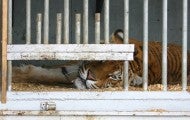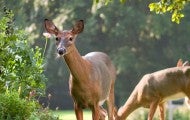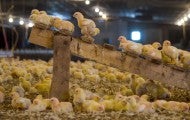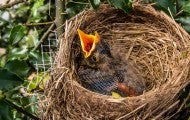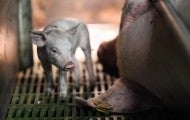Showing 13 of 33 results
Do your homework So you’ve decided to add a new pet to your family. First, you should answer some questions: What kind of pet will be the best fit for your household? Do you have enough time to devote to the daily needs of a dog? Is there someone in your household who is allergic? What about a non...
Around the world, animals used for meat, eggs and dairy often suffer on factory farms where they are treated as units of production rather than living, feeling creatures. The Humane Society of the United States and Humane Society International present comprehensive reports on animal agribusiness and...

